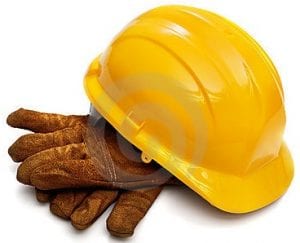 FELA has grown and changed over the years, but one thing has not changed. FELA still provides strong support for injured railroad workers who know their rights and how to protect them. Here are five things all railroad workers should know to protect their rights in the event of an injury:
FELA has grown and changed over the years, but one thing has not changed. FELA still provides strong support for injured railroad workers who know their rights and how to protect them. Here are five things all railroad workers should know to protect their rights in the event of an injury:1. FELA differs from Workers’ Compensation
The Federal Employers’ Liability Act (FELA) helps ensure railroad workers’ rights. The U.S. Congress passed FELA in 1908 for railroad workers and their families. FELA is designed to help protect every type of railroad worker, whether an engineer, brakeman, switch man, dispatcher, or any other railroad employee. FELA law differs from state workers’ compensation laws and state-based negligence laws. One must show negligence to win a case under FELA. Workers’ compensation cases, by contrast, are no-fault.
2. The Railroad is not on the worker’s side
Railroads will aggressively defend themselves against any injury claim. Railroad companies typically employ several hardball tactics to quickly minimize an injured worker’s claim. Company representatives and insurance adjusters often begin preparing their defense against any potential injury claim while an injured worker is still in the emergency room. That is why it’s crucial to understand one’s rights as a railroad employee after a railroad-related injury.
3. A railroad worker is not required to hire a union-designated lawyer.
Anyone injured while working for a railroad has likely heard of “union-designated” lawyers. An injured railroad worker may think it mandatory to hire a union lawyer for legal representation, but this is not the case. There is no “requirement” that an injured railroad worker must hire a union lawyer.
“Union-designated” means only that the lawyer or law firm was selected by the representatives of the union to represent members in cases involving railroads. “Union designated” does not certify a lawyer’s competence, reputation, or success record. It says only that the lawyer has succeeded in getting connected to those who run the union.
 Related: Learn how our Railroad Attorneys can help. Give us a call at (888) 923-7001. Click here for a free legal consultation.
Related: Learn how our Railroad Attorneys can help. Give us a call at (888) 923-7001. Click here for a free legal consultation.
4. An injured worker can choose a personal doctor
A man (or woman) has the right to choose his own doctor for treatment of railroad injuries, even though one may still have to see a doctor chosen by the railroad. However, one needs to be very careful visiting a railroad’s chosen doctor. Though that railroad doctor may have experience with railroad injury claims, that person may not have the injured worker’s best interests at heart.
Beware the Doctor Who Works for the Railroad
That doctor works for the railroad, not for you. It may be the doctor’s sole job to evaluate employees who have been hurt while working for the railroad. Railroad doctors may not even have a practice outside of company medical exams. They are generally chosen for the job because the railroad trusts them to document findings favorable for the railroad.
The purpose of the exam by the railroad’s doctor is to find evidence that could destroy a worker’s injury claim. The one or two company exams an injured worker may be required to attend are the railroad company’s only chance to build medical evidence against the worker’s claim. It is typical to find that results of the railroad doctor’s exam twist the truth to make it appear that the worker exaggerates personal injuries.
Any railroad worker who must visit a company doctor would be wise to speak with an attorney about how to prepare for an exam to protect his personal rights. Though one should always be honest about any injuries, it is easy to make a tiny mistake or fall into a trap which could make it easier for the railroad to avoid responsibility.
5. Protecting Medical Records is Crucial following a railroad injury
One may not think much about medical privacy when seeing a family doctor for a checkup, but it becomes a major concern if one has been injured at work. In a railroad injury case, it’s important for two reasons:
* The company may try to defend itself against accusations that it was responsible for what happened and for how the worker was injured.
* The insurance company may try to minimize its liability for a personal injury on the job.
Five Things All Railroad Workers Should Know
The railroad and insurance companies’ ability to defend themselves against a railroad worker’s claim often turns on how much information they have on the injured worker’s personal and medical history. A person can control others’ access to personal medical records with a medical release-of-information form. One is wise to limit access to this information as much as possible.
 RELATED
RELATED
- FELA Railroad Injury Lawyer
- FELA Case Lawyer

by Matthews & Associates




